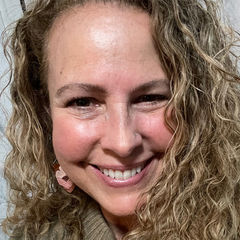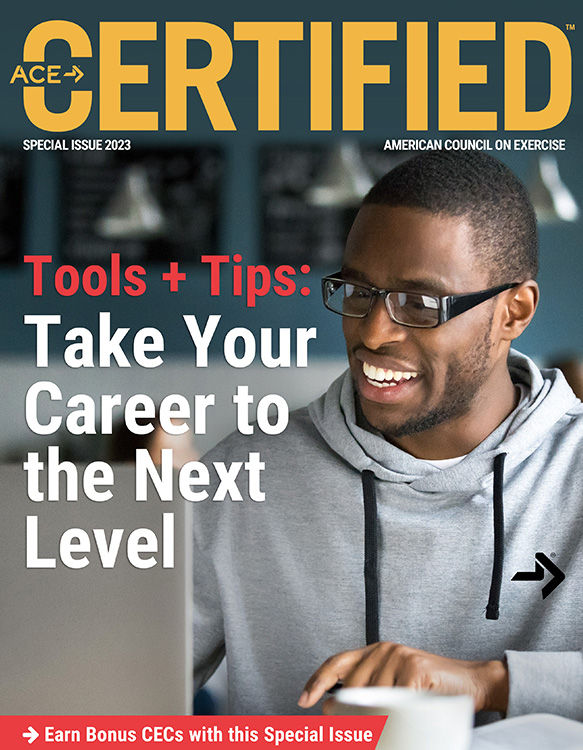
If you’re a health and exercise entrepreneur just starting out—or you’ve been a business owner for a while but are changing things up—you might be wondering if you need a website. After all, you can do a lot on social media these days, so do you really need to invest both time and money into a website?
The answer, says Craig Flickinger, CEO of Burnt Bacon Web Design, is a resounding yes. “If you don’t, you are missing out on a massive audience. It’s basic marketing. You need to let people know you exist.”
“I think of a website as an ‘online first impression,’” explains Staci Alden, owner of Alden Fitness Solutions. “It is a living, breathing form of a business card…but instead of being locked into what’s printed on a piece of paper, a website is dynamic and can be updated and enhanced anytime. If you think you need business cards or a place to send people to learn more about what you do and why you do it, then you need a website.”
Meg Brown, owner of Miss MegaBug, LLC, a website design company that also offers online marketing and business courses, says that if you’re a business owner or freelancer, you need a website. “Social media, and all forms of marketing, are supplemental to a website. The objective is to share an excerpt of information to pique a potential client’s interest via marketing channels, then link to your website where they can learn more and make a purchase or book [a session] with you.”
While some feel that social media can be used in place of a website, Brown warns against this idea. “Using social media in place of a website not only tarnishes a business’s professional image, it backfires on the goal of increasing customers,” she says. “On a Facebook page, for example, it’s easy to click on another competitor’s page or be diverted to incoming messages and notifications. Facebook and other platforms could also shut down at any time, taking your main internet presence with them. You own your website and can transfer to a different host if need be.”
“Social media platforms hold all of the control,” agrees Alden. “Any account can be hacked or taken down completely for any number of reasons. The algorithms these platforms use are also in complete control of what content you post [is seen] in someone else’s newsfeed. With a website, you own the URL and have complete control of what is available to someone who visits [and wants] to learn more about who you are and what you do.”
If you’ve been using social media as your primary online presence, you don’t have to give up on it completely. As Brown says, social media can be a marketing supplement to your website. Facebook groups, for example, can be a good way to nurture your audience and potential clients until you are at the point of being able to afford a website platform with a group or membership option. Creating and growing an email list is another way to market your business, and one that is directly associated with your website.
Can a Landing Page Take the Place of a Website?
If you’ve been in the online business space for a while, you may have heard some experts say that a website isn’t necessary, and that you could get by with just a landing page. What is the difference between a landing page and a website?
“A landing page is a web page designed for a specific goal, generally to increase subscribers of an email newsletter list, sell a single product, or receive entries on a form,” explains Brown. “They are hyper-specific to this one goal and don’t share the breadth of what a business has to offer [like a website does].”
Brown explains that a website is a collection of landing pages that encourage viewers to get to know the business and what it has to offer. “Because of this, websites are more successful at selling than landing pages.”
“A landing page is more like a pamphlet and a website is more like a book,” describes Flickinger. “For some, a landing page is all they need to push their idea, but it’s more typical to see a full website. People like to tell their story, as well as sell their goods and services with more info and pages, [which gives you a] bigger online footprint. It also can be very beneficial with SEO [search engine optimization], as you are indexing more content with a website.”
Having a website that tells your story also allows you to connect to the audience you’re trying to serve. But for those just starting out, a full website may be out of reach for several reasons. In this case, Alden suggests that a landing page might work as a starting point.
“Initially when you build a website, you might just start with a landing page that includes a headshot, brief overview of who you are and what you do. As you learn more about what’s possible to showcase on your website, you will want to make it easy to navigate by creating different ‘landing pages’ for visitors to access various information. For example, from the initial landing page [or website homepage], they can select other tabs to visit separate pages like Services, Articles, Sample Workouts and Contact Information.”
It could be that you want more than just a landing page, but financially can’t yet afford to hire a website designer. Fortunately, you still have options.
“Unless you’re planning on using a website for processing payments, there is a laundry list of website host sites that are completely free to use,” says Alden. “Since building a website has become so common, these host sites have templates, instructional videos and step-by-step instructions to help their clients’ websites succeed.”
Some Popular Website Building and Hosting Companies
Wix
Squarespace
WordPress
GoDaddy
Weebly
Brown agrees. “Nowadays, it’s easy to DIY your own website. Website platforms are more intuitive to use, and many don’t require coding. Wix, Weebly and Squarespace are popular options, and the cost of website hosting and a domain are usually $300 or less per year, [depending on what level of service you choose].”
When you’re building your own website, Brown recommends including certain must-haves. “If you decide to design your own website, be sure to have home, services, about and contact pages. Bonus points if you opt for a blog! They’re excellent for SEO, even if you post just once a month. You can then share that post to your social media channels.
SEO What?
As mentioned earlier, SEO stands for search engine optimization. “The goal of SEO is to help your website appear as close to the top of relative search engine results as possible,” explains Brown.
As an example, let’s say you’re a personal trainer in Littleton, N.H. When someone searches for “personal trainer in Littleton, N.H.” on Google, you want your website to appear at the top of the results page, says Brown. “SEO is all about clarity and consistency. Think about what terms—your keywords—you’d want your business to show up for in a Google search. Keywords are usually your products and services. And if you work within a certain geographic location, be sure to include the towns and state. Once you have your keywords established, sprinkle them throughout the text on your website.”
“Generally,” adds Flickinger, “there are two ways of getting on that first page when someone uses a search term, either organic (free) or paid (AdSpend). Organic typically takes a lot longer and, with the help of an SEO expert, can yield fantastic results, but patience is involved.”
AdSpend, or paying for advertising, can get financially costly, and isn’t always recommended for those who are just starting out, unless you’ve got a budget for it. While organically building your audience and traffic can take longer and use more of your time, it’s also a way of nurturing your audience, building the know-like-trust factor. In other words, people don’t do business with businesses. They do business with people; specifically, people they know, like and trust. Fostering this connection is important for gaining and maintaining clientele.
To go one step further, Brown recommends a Google Business listing. “As soon as your website is live, claim your listing on Google Business and request an index of your website through Google Search Console. Both of these tools are free to use and help Google become acquainted with your website so it knows where to place it in search results.”
Whether you’re new to entrepreneurship or haven’t felt the need for a website, hopefully you now see the value of having one. “A website is a huge time investment upfront, but quick and easy to maintain,” concludes Brown. “It’s essential to have in today’s digital age and benefits your business way more than social media ever could.”





 by
by 


